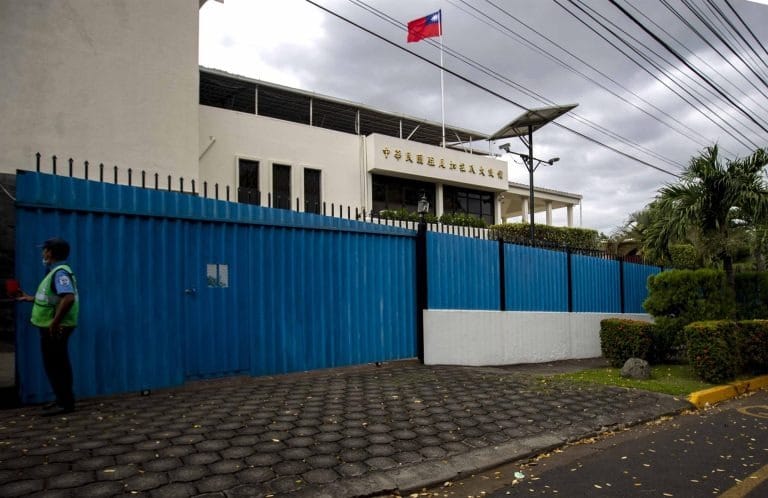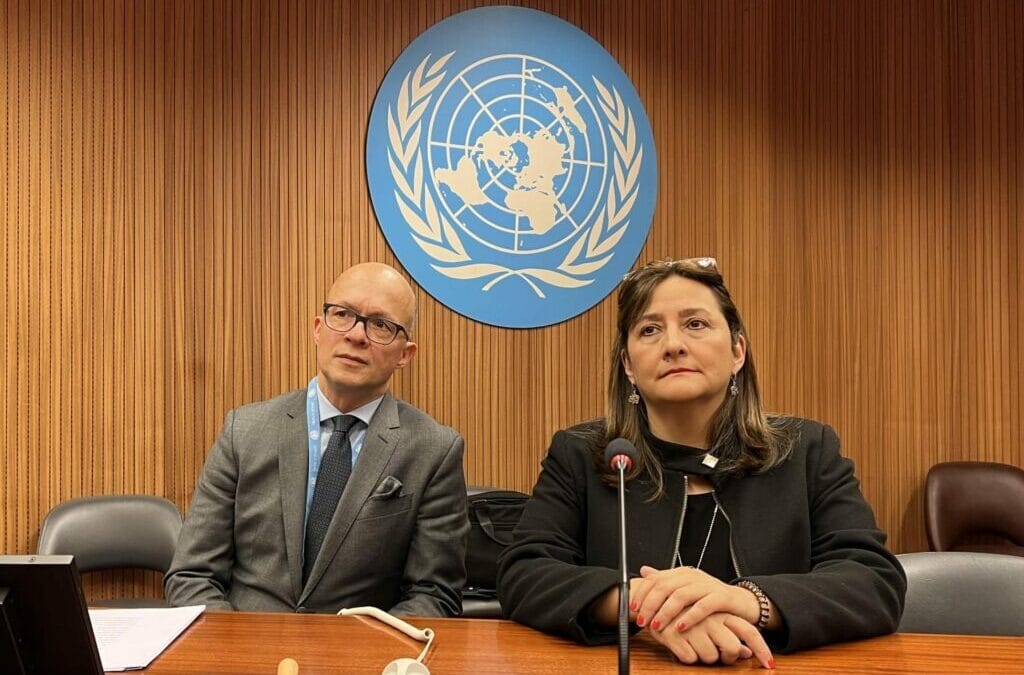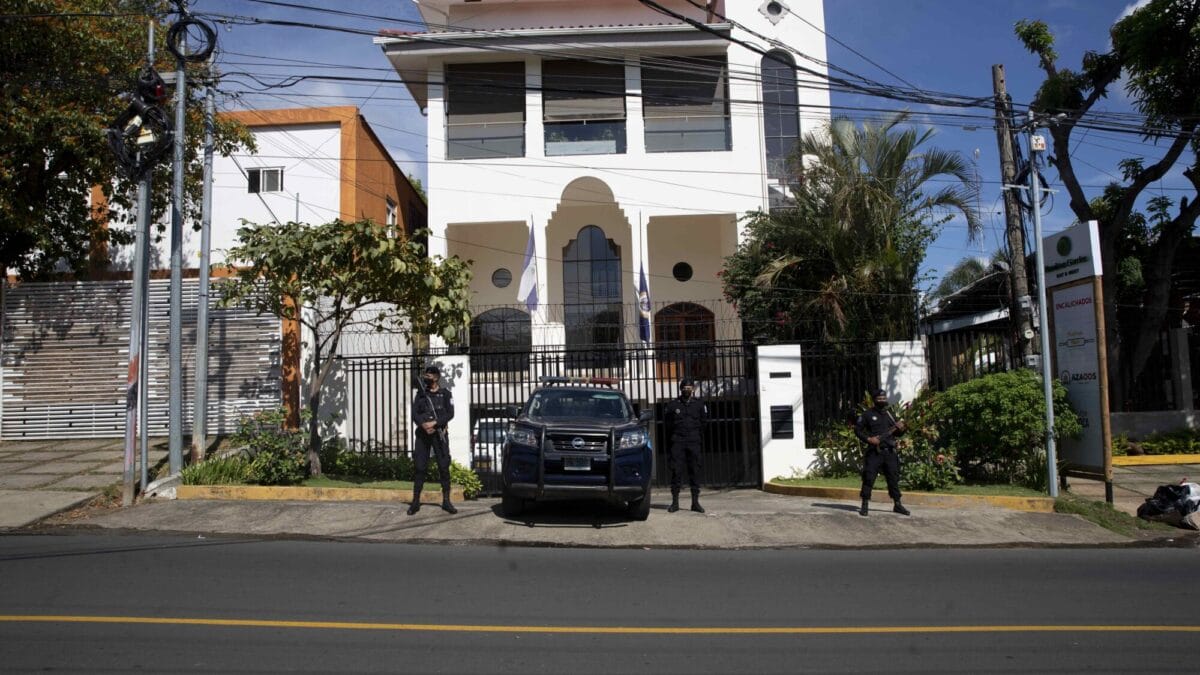Nicaragua severed its relationship with the Organization of American States (OAS), denouncing its Constitutive Charter, to evade the fundamental political and diplomatic mechanisms for the defense of democracy and the promotion and maintenance of peaceful coexistence in the continent. With its withdrawal, Nicaragua intends to dissociate itself from the principles and values of the OAS Charter and the Democratic Charter.
Furthermore, the Ortega-Murillo dictatorship continues to be in permanent contempt of the resolutions and recommendations of the Inter-American System issued by the Inter-American Commission on Human Rights (IACHR), MESENI (Special Monitoring Mechanism for Nicaragua) and the Inter-American Court of Human Rights (IACtHR). This was stated by the outgoing president of the IACHR before the Permanent Council of the OAS, Ricardo Perez Manrique.
Nicaragua has also failed to address the recommendations of the universal system, issued by the United Nations Human Rights Council (UNHRC), the United Nations High Commissioner for Human Rights, and the Group of Experts on Human Rights in Nicaragua (GHREN).
The Ortega-Murillo regime has disregarded the Vienna Conventions on Diplomatic Relations and Consular Relations, ignored the immunity of the diplomatic headquarters of the OAS and the Republic of Taiwan in Managua, seized their assets, and inhibited the right to appoint Nicaraguan nationals as honorary consuls. It has also unjustifiably expelled the ambassadors of the Vatican and the Netherlands, without them having to merit such sanction.
The systemic and widespread violation of human rights constitutes a serious breach of international law, both conventional and customary, and sets Nicaragua apart from civilized countries obliged to abide by the fundamental principles of international law. The violation of international humanitarian law, including the murder of at least 350 people, the torture of prisoners of conscience, and the persecution of dissident and opposition voices, is well documented.
It also violates universal and regional human rights treaties, including the Pact of San José, regarding the lack of respect for all categories of human rights.

The Ortega-Murillo dictatorship is in breach of several international treaties signed and ratified, among them the UN Conventions on Statelessness. They have turned the country into a factory of stateless persons, whose number grows daily with the de facto denationalized persons who are prevented from returning to the national territory, affecting the countries where they are forced to take refuge.
They have also violated the United Nations (UN) Convention Against Torture and the American Convention, disregarding even the resolutions of the UN Committee Against Torture, with whom they have refused to cooperate.
The Ortega-Murillo regime flagrantly disrespects the Palermo Convention against Transnational Organized Crime. It devised a structure with branches in four continents to promote the illicit trafficking of irregular migrants, through new air routes that transfer them to Managua International Airport, so that from there they continue their journey by land to the southern border of the United States.
In addition, they promote impunity for those responsible for crimes against humanity, whom they have rewarded with promotions in their positions within public institutions, thus denying access to justice to the victims and refusing to promote lawful proceedings in independent courts.
The Ortega-Murillo disregard the fundamental principles contained in the UN Charter, such as that which proscribes the use of force to seize the territory of another state, that of respect for sovereignty and internationally recognized borders, and that which safeguards the obligation on the peaceful coexistence of states. They supported the Russian invasion of Ukraine and recognized territories of Ukraine and Georgia, which Russia has annexed by force. Nicaragua is one of the three countries that recognize and have diplomatic relations with Abkhazia and South Ossetia.
Nicaragua repeatedly violates trade union and employer rights and fails to comply with labor rights conventions, especially Convention 87 on freedom of association and the right to organize, which is implemented by the International Labor Organization (ILO).

Nicaragua faces serious environmental challenges, such as deforestation, contamination of water sources, and loss of biodiversity, which are exacerbated by the indiscriminate exploitation of natural resources in protected areas. The increase in mining contributes to the worsening of the environmental crisis and causes the displacement of indigenous communities. Nicaragua rejected the commitments of the Paris Climate Agreement, a decision that demonstrates its lack of interest in preserving the environment and places the country on the margins of international commitments on environmental protection and human rights.
The regime fails to comply with the guiding principles and aspirations of democracy and human rights, especially those related to guaranteeing a Central American region in peace, democracy, development, and freedom in accordance with the Tegucigalpa Protocol and the Framework Treaty for Democratic Security in Central America. In addition, it intends to instrumentalize the Central American Integration System (SICA), for the benefit of its alignment with extra-regional powers, which would increase the risk of turning the region into a space of international confrontation.
Establishing a dictatorial regime detached from all democratic practices violates democratic clauses contained in trade treaties signed with the European Union (EU) and North America.
They deny the values and principles of international law that ensure the peaceful coexistence of nations, the Ortega-Murillo regime jeopardizes peace, security, and regional stability.
It is for these reasons that the Concertación Democrática Nicaragüense (CDN-Monteverde), is aware that it is the international community that is called upon to safeguard the validity of and respect for international law and in the face of the impunity promoted by the Ortega-Murillo dictatorship, asks the international community to contribute to ensure that those guilty of these crimes against humanity are brought before the different possibilities offered by international justice, before the International Court of Justice, the International Criminal Court and the jurisdiction of the countries that contemplate the principle of universal jurisdiction.
OAS calls for an end to impunity in Nicaragua

The Nicaraguan Democratic Concertation CDN-Monteverde celebrates the approval of the resolution of the General Assembly of the Organization of American States (OAS), held in Asuncion Paraguay from June 26 to 28, in which 32 member countries unanimously called for the end of the repression and political persecution, and the release of all persons who are imprisoned for political reasons. In addition, for the first time, the organization advocated that the human rights violations and crimes against humanity committed by the Ortega-Murillo regime and its accomplices in the context of social protests should not go unpunished.
The decision of the organization reminds its member countries that they are obliged to establish individual and collective guarantees in favor of the reestablishment of democracy and freedom in Nicaragua, demonstrating that the efforts of the Ortega-Murillo regime to disassociate itself from the organization, renouncing it to evade its commitments to international justice, were unsuccessful.
Seven months after its official departure from the OAS, the Nicaraguan crisis and the urgent need to find a civic and peaceful solution that would allow it to return to the path of democracy was more present than ever on the agenda of the General Assembly.
In its resolution, the OAS expresses to the Nicaraguan rulers that it is alarmed by their permanent disregard of the decisions issued by the Inter-American Court of Human Rights (IACHR) to protect organizations and individuals who are persecuted and deprived of their rights and others who remain in prison for political reasons and whose rights are disrespected.
Furthermore, six years after the outbreak of the socio-political crisis, the OAS introduced the issue of impunity in its resolution for the first time. The unanimous ratification by the member countries that those guilty of crimes against humanity committed during the social protests must pay for them is a triumph for the victims, their families, and the country.
We recognize that this new international condemnation, which has now been made unanimously, is the result of the work of many people, including the support of the representatives of the member countries and especially that of the members of the Group of Volunteer Countries for Nicaragua, with whom we have worked in recent months, and will continue to do so in the future.
Through this joint work with the Group of Volunteer Countries for Nicaragua, we will keep the international community informed of the abuses that the Ortega Murillo regime continues to commit against all organizations and individuals it considers a threat to its authoritarian model. We will also continue to seek a civic and peaceful solution that will bring about the full release of all those imprisoned for political reasons, the return of Nicaragua to the path of democracy, and ensure that the crimes committed do not go unpunished.
The CDN-Monteverde is grateful for the support of each of those who made the forcefulness of this resolution possible. We ask for your cooperation in taking the next step, which is to ensure that the states of the hemisphere take the individual or collective actions called for in the resolution to guarantee the halt of human rights violations, ideological persecution, and the reestablishment of institutions and the rule of law.
The CDN-Monteverde knows that it is a difficult task, but not impossible, and that with the support of the international community, it will be easier to achieve.
